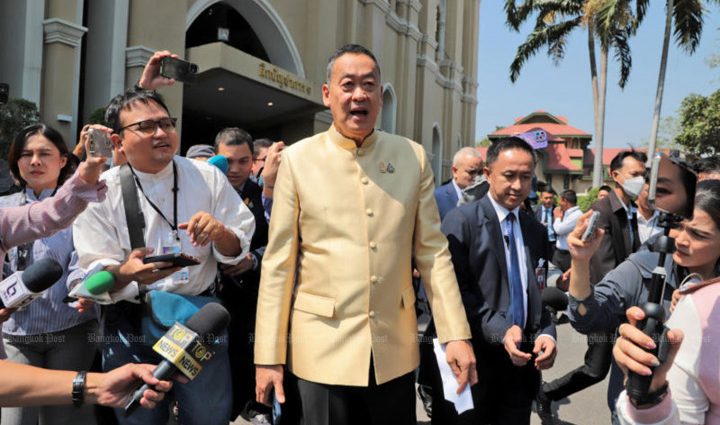Ending VAT waiver seen as one possible way to lessen impact on local producers and sellers
PUBLISHED : 15 Feb 2024 at 18:58

Prime Minister Srettha Thavisin has urged the Revenue and Customs departments to speed up efforts to stop cheap products from China from flooding Thailand’s domestic market, including revoking the value-added tax waiver on Chinese products worth less than 1,500 baht.
The influx of cheap goods from China through e-commerce platforms is affecting the incomes of local producers of household goods, the Joint Standing Committee on Commerce, Industry and Banking (JSCCIB) said this week.
It said the country has recorded a trade deficit with China for three years, with the value of imports far exceeding the value of Thai goods exported to the world’s second largest economy.
China was Thailand’s largest trade partner in 2023, with total trade value of $105 billion and a $36.6-billion surplus in Beijing’s favour, according to the Ministry of Commerce.
The import sector is so lucrative that SF Holding, China’s second-largest express logistics service provider, has acquired a majority stake in Kerry Express (Thailand). It now owns 73.2% of the shares in the SET-listed logistics provider, the committee noted.
Imported goods from China have dominated the domestic market so much that even most of the nation’s iconic elephant print trousers, popular with tourists, are mass-produced in China.
Mr Srettha urged all related agencies to keep an eye on customs declarations, as there have been several incidents in which importers would under-declare the value of the goods they were bringing in, so they could benefit from VAT and import tariff waivers.
Some merchants have taken a step further, by sending their goods to Thailand’s e-commerce free-trade zones, where they can be stored until they are ordered by online customers, a source said.
The influx of Chinese products is hurting local manufacturers who are unable to compete on price, Mr Srettha said in a statement on his X account. The products also lacked standard certifications from government agencies and often infringed intellectual property rights, according to the premier.
Lawaron Saengsanit, the permanent secretary for the Ministry of Finance, said earlier this week that the Customs and Revenue departments and other agencies would discuss possible measures to stem the tide of cheap Chinese products.
These could include terminating VAT and customs privileges for Chinese products valued at no more than 1,500 baht apiece, or amending the rules to more closely match current market conditions, said Mr Lawaron.
Under a framework agreed by members of the Asia-Pacific Economic Cooperation (Apec) forum, Thailand raised the maximum price of products imported from China that are exempt from VAT and customs duties in 2018 — from 500 baht to 1,500 baht per item.

